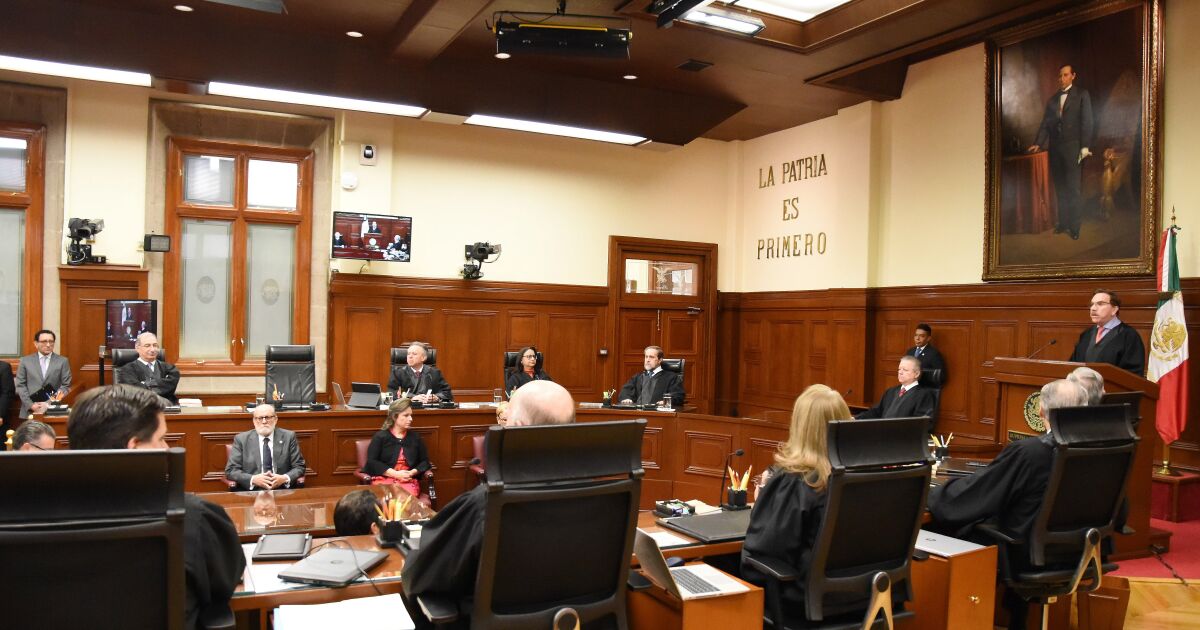Rafael Correa and Jorge Glas left the list. Now, the Assembly processes a reduction in the amounts of pensions.
This week, the Plenary of the National Assembly processed in the first debate the project that reforms the Public Service Law on the Lifetime Pension Scheme for former presidents and former vice presidents of the Republic. This seeks to regulate the allocation of the benefit enjoyed by the country’s former presidents.
If approved, it will mean that the former presidents they will stop receiving the current $3,804 they receive, on average, each month and that the new amount will be $2,536. While the salaries of former vice presidents would go from $3,651 a month to $2,434.
In addition, the project includes new grounds to withdraw those benefits from former presidents: when their mandate is revoked, when they have been dismissed from their functions due to abandonment of the position, or when they have been dismissed for assuming functions or due to a serious economic crisis and internal commotion.
22 former officials receive monthly pensions
For now, there are 12 former presidents and 10 former vice presidents – or their legal heirs – who receive a lifetime payment. The State invests each month $75,302 to comply with pensions, according to information that the Ministry of Finance delivered to LA HORA.
Lenin Moreno Garces He is the last to enter the list of former presidents who receive a monthly payment. The former dignitary, who lives in Miami (United States), has a monthly pension from $3.804from May 2021, when he left the Presidency.
The payment of pensions corresponds to 75% of the current remuneration for the President and Vice President.
A similar amount is delivered by the State 11 other men who occupied the Carondelet Palace (see graphic). On the list, only Fabián Alarcón, who assumed the Presidency on an interim basis, receive a smaller amount.
In the case of former vice presidents, there are unequal items. alberto dahik, Rosalía Arteaga, Jorge Zavala, Blasco Peñaherrera and Luis Parodi have a higher monthly payment. They won the elections and occupied the Vice Presidency. The State disburses $3,651.75 for each one. The other five, who receive a smaller amount, became vice presidents by designation of the National Congress after the institutional and political crises that left power vacuums.
Convicted have no remuneration
On June 22, 2020, the changes entered the Official Registry to the art. 135 of the Losep. There, elements were included to remove this benefit from former presidents “That they had not completed the period for which they were elected because they had been dismissed according to one of the grounds established in the Constitution.”
It was also determined not to pay the monthly payment to former presidents or former vice presidents who “have been sentenced for crimes of embezzlement, bribery, extortion, illicit enrichment, crimes against life, crimes against humanity, against public faith, and/or sexual assault or violence.”
Former President Rafael Correa, sentenced for the Bribery corruption case 2012-2016, and former Vice President Jorge Glas, also convicted in that corruption plot and for the Odebrecht case, lost their monthly payments.
According to information from the Ministry of Finance, Correa received the pension from May 2017 to October 31, 2018. Then, his monthly payment went to name of his sister Pierina, until September 23, 2020, when their payments definitively ceased. On that same date, Jorge Glas lost the same right.
Moreno’s vice presidents do not appear on the list
Jorge Glas, who was Moreno’s running mate in the 2017 elections, does not receive a monthly payment from the execution of the sentence for Bribery.
Maria Alejandra Vicuna, sentenced to two years in prison for tithes collected when she was an assemblyman, assumed the Vice Presidency after the departure of Glas. He served 332 days in office. Regardless of the sentence against him, which has not yet been executed, he could not receive a pension due to the express prohibition of Losep.
There it is stated that the pension will be for all those who are “constitutionally elected by popular vote and have taken office.” She came to power by appointment of the Assembly.
This same paragraph of Law governs former vice presidents Otto Sonnenholzner and María Alejandra Muñozwho were also the second leaders in the Moreno government.
Sonnenholzner spoke with this newspaper. He pointed out that apart from the Law, he had previously voluntarily waived the right to the pension. “My case is not common. Before I became Vice President, I had my assets, my life was in the private sector. I’m young. Now I returned to my activities in construction, agriculture and commerce. I have not returned to communication”.
Sonneholzner assures that in other cases this monthly payment can be justified. “When you are in that position, you have to make decisions that often have subsequent consequences.. You must have the guarantee that you will later have economic independence to act with a firm hand.
Spending has fallen in recent years.
According to a report by the Public Expenditure Observatory of the Citizenship and Development Foundation, in 2008, Close to $595,000 were used to pay life pensions for former Ecuadorian presidents. This figure increased to just over $1,084,000, at the end of 2018, when a pension was paid to 26 people. In the latest report from the Ministry of Finance, the item in 2021 it was $903,633 and Only 22 former presidents are on the list.








